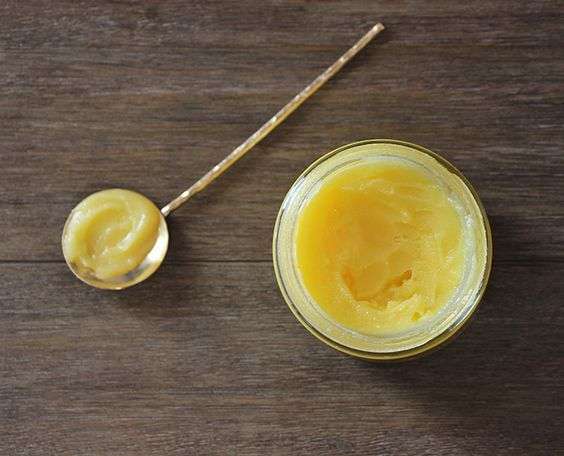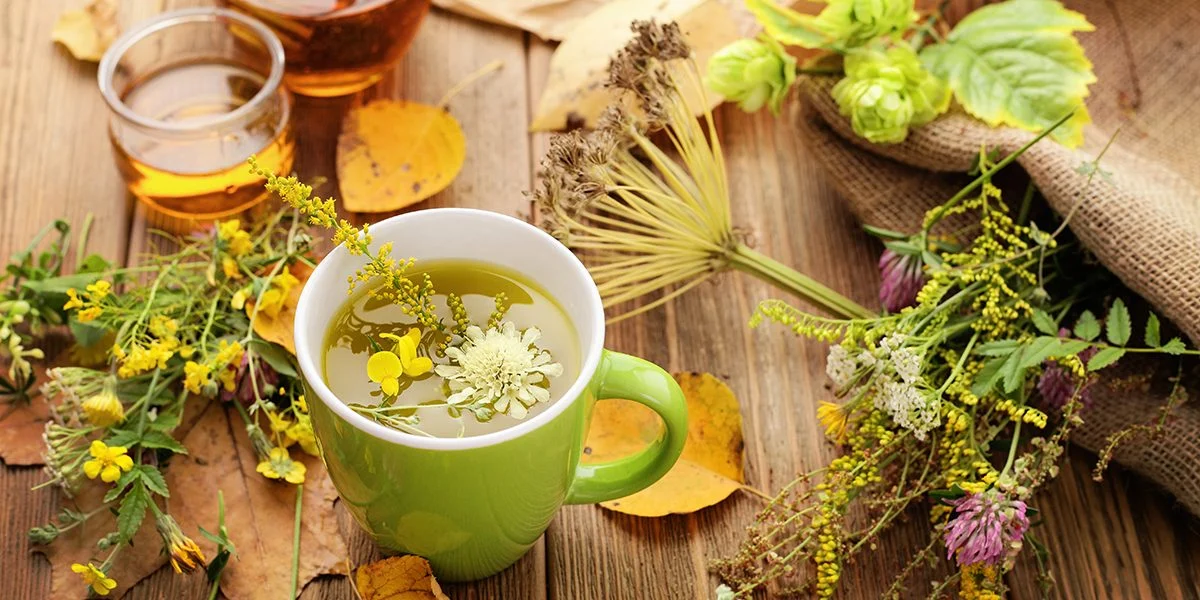10 Benefits of Eating Ghee Everyday.
Eating ghee every day can provide various health benefits:
- Rich in Healthy Fats: Ghee is a source of healthy saturated fats that can provide sustained energy.
- Supports Digestion: Ghee aids in digestion by promoting the production of stomach acid and enhancing nutrient absorption.
- Boosts Immunity: It contains antioxidants and vitamins like A, D, and E, which can strengthen the immune system.
- Improves Skin Health: Ghee’s moisturizing properties can help keep the skin hydrated and healthy.
- Enhances Brain Function: The fatty acids in ghee support brain function and may improve memory.
- Weight Management: Contrary to popular belief, moderate consumption of ghee can aid in weight loss by increasing satiety.
- Lowers Cholesterol: Ghee contains butyric acid, which may help reduce bad cholesterol levels.
- Joint Health: Ghee can lubricate joints and may alleviate symptoms of arthritis.
- Anti-Inflammatory: It possesses anti-inflammatory properties that can help with various health conditions.
- Promotes Heart Health: When consumed in moderation, ghee can promote heart health by providing essential fatty acids.
In the pursuit of a healthier lifestyle, it’s essential to consider not only what you eat but also how you cook your food. One ingredient that has been gaining attention for its potential health benefits is ghee. While it may seem counterintuitive to some, eating ghee every day can actually offer a range of advantages. In this article, we’ll dive into what ghee is, explore its nutritional value, and uncover the numerous health benefits it can provide. So, let’s get started!
What Is Ghee?

Before we delve into the health benefits, let’s understand what ghee is. Ghee is a type of clarified butter that has been used in Indian cooking for centuries. It is made by simmering butter, which separates the milk solids from the pure butterfat. What remains is a golden, fragrant substance with a rich, nutty flavor.
The Nutritional Value of Ghee
Ghee isn’t just tasty; it’s also packed with essential nutrients. Here’s a quick look at what you’ll find in a serving of ghee:
- Healthy Fats: Ghee is primarily composed of saturated fats, which may surprise some. However, these fats are predominantly in the form of medium-chain triglycerides (MCTs), which can have various health benefits.
- Vitamins: Ghee contains fat-soluble vitamins such as A, E, and K, which play crucial roles in maintaining overall health.
- Antioxidants: Ghee is a source of antioxidants that help combat free radicals and reduce oxidative stress in the body.
- Butyric Acid: This short-chain fatty acid found in ghee may promote gut health and have anti-inflammatory properties.

Ghee Myths and Facts
Let’s debunk some common myths surrounding ghee and highlight the facts.
Myth: Ghee Causes Weight Gain
As mentioned earlier, ghee can actually aid in weight management when consumed in moderation and as part of a balanced diet.
Fact: Ghee Is Lactose-Free
Ghee is clarified butter, and the clarification process removes lactose and casein, making it suitable for lactose-intolerant individuals.
Myth: Ghee Is Unhealthy
Ghee is a source of essential fatty acids, vitamins, and antioxidants, making it a healthy choice when used sensibly.
Fact: Ghee Contains Essential Fatty Acids
Ghee provides essential omega-3 and omega-6 fatty acids that are beneficial for brain health and overall well-being.
How to Incorporate Ghee into Your Diet
Now that you know the benefits, here are some practical ways to add ghee to your daily meals.
Cooking with Ghee
Replace traditional cooking oils with ghee for added flavor and nutrition in your dishes. It’s great for sautéing, frying, or even as a drizzle on vegetables.
Ghee in Coffee or Tea
A growing trend is adding a spoonful of ghee to your morning coffee or tea. It provides a creamy texture and a unique flavor that many find delightful.
Ghee in Ayurveda
In Ayurveda, ghee is considered a healing food. It’s used in various medicinal preparations and is believed to balance the body’s doshas (energies).
Health Benefits of Consuming Ghee
Now, let’s explore the specific health benefits of making ghee a part of your daily diet.
Improved Digestion
Ghee has long been used in Ayurvedic medicine to promote healthy digestion. The butyric acid in ghee supports the growth of beneficial gut bacteria, which can aid in digestion and reduce gastrointestinal issues.
Weight Management
Contrary to the misconception that ghee leads to weight gain, it can actually help with weight management. The MCTs in ghee may increase metabolism and promote fat burning when consumed in moderation.
Better Heart Health
While ghee is high in saturated fats, it’s also rich in antioxidants and healthy fats that may help reduce inflammation and support cardiovascular health. When used in place of unhealthy fats, ghee can be a heart-healthy choice.
Boosted Immunity
The vitamins and antioxidants in ghee contribute to a stronger immune system. Regular consumption may help your body ward off infections and illnesses more effectively.
Radiant Skin and Hair
Ghee’s moisturizing properties can benefit your skin and hair. Whether used topically or ingested, it can help maintain skin elasticity and promote hair health.
FAQs about Ghee
1. Can ghee replace butter in recipes? Yes, ghee can be used as a butter substitute in most recipes, providing a unique flavor and added health benefits.
2. Is ghee suitable for vegans? No, ghee is not vegan as it is a dairy product. However, there are vegan alternatives available, such as coconut oil or vegan butter.
3. Can ghee be stored at room temperature? Yes, ghee has a long shelf life and can be stored at room temperature in an airtight container. Its low moisture content prevents spoilage.
4. How much ghee should I consume daily? The recommended daily intake of ghee varies from person to person. It’s best to consult with a healthcare professional or nutritionist for personalized guidance.
5. Can ghee trigger allergies? Ghee is generally well-tolerated, but individuals with dairy allergies should avoid it, as it still contains trace amounts of milk proteins. Always check product labels for allergen information.
Do Follow Us On Twitter – https://twitter.com/Uniqverses708
We Have a Wide Range of Unique information For You On Uniqverses.com
Please like, comment & Share if you want us to keep bringing these amazing and unique information for you.









